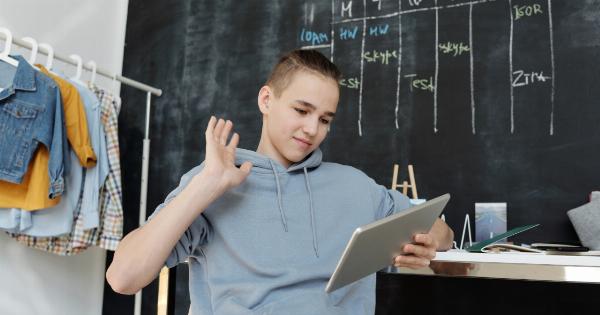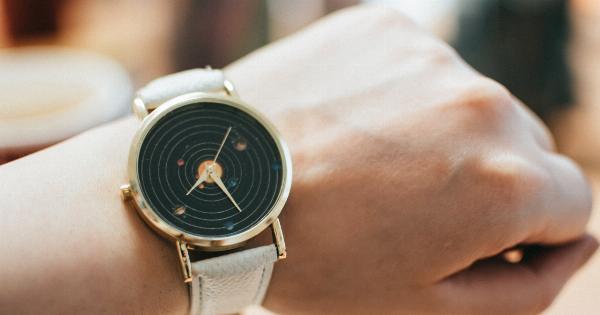Whether we like it or not, the world of dating has changed dramatically in recent years. With the rise of technology and the advent of dating apps, finding a potential partner is just a few swipes away.
But are these apps truly changing the way we choose our partners? Are they making us more open-minded or limiting our options? In this article, we will delve into the impact of dating apps on our dating preferences and explore whether they are altering the way we select our romantic partners.
1. The Convenience Factor
One of the primary reasons dating apps have gained immense popularity is their convenience. Traditional methods of dating often required a significant investment of time and effort.
From dressing up, going out, and socializing to meet new people, the process could feel exhausting and inefficient.
However, dating apps have made it possible to meet potential partners from the comfort of our homes. With a few taps on our smartphones, we can instantly connect with countless individuals.
This convenience has undoubtedly altered our approach to dating, as it allows us to browse through numerous profiles with ease.
2. Expanding Our Social Circles
Dating apps have also broadened our social circles. In the past, our dating options were often restricted to the people we could physically encounter in our day-to-day lives.
Whether it was friends of friends, colleagues, or acquaintances, our selection pool was limited.
However, dating apps have shattered these limitations by connecting us with individuals outside our immediate social circle. We can now interact with people from different backgrounds, cultures, and geographical locations.
This expansion of possibilities often leads to a more diverse dating experience.
3. Increased Access to niche communities
Another significant advantage of dating apps is the ability to connect with niche communities. These communities cater to specific interests, lifestyles, or preferences.
Whether you are a single parent, a member of the LGBTQ+ community, or have unique hobbies, dating apps have made it easier to find like-minded individuals.
In the past, finding someone who shared your uncommon interests could be a challenge. However, dating apps have provided a platform for these niche communities to connect and find partners who understand and appreciate their uniqueness.
4. Superficial Judgments
While dating apps offer convenience and a wider pool of potential partners, one downside is the prevalence of superficial judgments. On these apps, appearances often play a significant role in swiping decisions.
Users tend to make quick judgments based solely on a person’s profile pictures, which can overshadow other important qualities.
This emphasis on physical appearances may lead to a shallow dating culture, where individuals focus primarily on looks rather than deeper connections or compatibility.
As a result, some argue that dating apps are changing our preferences by placing undue importance on superficialities.
5. The Paradox of Choice
The abundance of options presented by dating apps can also have a negative effect on our decision-making process. With endless potential matches at our fingertips, individuals may become overwhelmed by choice.
This “paradox of choice” phenomenon often leads to increased indecisiveness and dissatisfaction.
Psychological research suggests that too many choices can lead to decision fatigue and a fear of missing out (FOMO).
This may prompt individuals to continue swiping and searching even when they have made a potentially suitable match, constantly wondering if someone even better is waiting just around the corner. Therefore, dating apps can contribute to a never-ending cycle of indecision and perceived missed opportunities.
6. The Role of Algorithmic Matching
Many dating apps employ complex algorithms to match individuals based on various factors such as shared interests, location, and compatibility scores.
While these algorithms aim to optimize our chances of finding a compatible partner, they may also influence the way we choose our partners.
By relying on algorithmic recommendations, users may become more inclined to trust the app’s choices and overlook potentially suitable candidates who do not fit the predetermined criteria.
This can narrow our dating options and prevent us from exploring genuine connections outside of the app’s suggestions.
7. Virtual vs. Real Connection
While dating apps provide a platform for initial connections, they can sometimes hinder the development of genuine relationships.
In the absence of face-to-face interaction, it can be challenging to establish a deep emotional connection with someone solely based on online interactions.
Moreover, dating app conversations can often feel transactional or impersonal, with many users engaging in small talk rather than meaningful conversations.
This emphasis on casual communication can affect the way we choose partners, prioritizing surface-level interactions over genuine emotional compatibility.
8. Reinforcing Biases and Preferences
Despite their potential for widening our dating prospects, dating apps can inadvertently reinforce biases and preferences. Algorithms may inadvertently perpetuate racial, ethnic, or socioeconomic biases present in society.
For example, certain racial or ethnic groups may be less likely to receive matches or be shown to other users.
Additionally, users may be more likely to choose partners who share their political or religious beliefs, as dating apps provide the ability to filter matches based on specific criteria.
While this may result in greater compatibility in some cases, it may also contribute to echo chambers and limited exposure to diverse perspectives.
9. Preserving Stereotypes and Prejudices
Online dating profiles often contain limited information, allowing individuals to project their assumptions onto others. While dating apps have the potential to challenge stereotypes and prejudices, they can also inadvertently perpetuate them.
Users may base their dating preferences on societal stereotypes or generalizations, inadvertently excluding potential matches based on false assumptions.
By doing so, dating apps may inadvertently perpetuate biases and hinder the progress towards a more inclusive and accepting society.
10. The Future of Dating Apps
As dating apps continue to evolve, they have the potential to shape the future of how we choose our partners. While they offer convenience, access to diverse communities, and the ability to expand our potential matches, they also hold potential risks.
Continued improvements in algorithmic matching, increased emphasis on fostering genuine connections, and addressing biases are essential for the positive evolution of dating apps.
Balancing technological advancements with human connections and emotional compatibility will be crucial in ensuring these platforms enhance rather than hinder our ability to find meaningful relationships.































